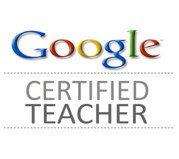Once in a while I read a book that I wish I'd written. It's like seeing myself in the mirror and thinking, "Hey, I look alright." This was the gift of reading Donalyn Miller's The Book Whisperer. I am so grateful for this wonderful book. It should be required reading for anyone who teaches or will teach reading.
 There are plenty of reviews of the book (see Karin Hallet's great review and infographic). My purpose for writing is to reflect on what this book made me think about and the changes I might make as a result.
There are plenty of reviews of the book (see Karin Hallet's great review and infographic). My purpose for writing is to reflect on what this book made me think about and the changes I might make as a result.I am a lifelong reader who reads any time, any place. Literacy is my biggest educational interest and the desire to share my love of reading was the motivation that brought me to this career in the first place. I believe so strongly in authentic literacy and learning through practice.
I am doing everything in my power to make reading real and enjoyable, to match readers with that perfect book, to lead the way by modeling and sharing my own reading experiences. I still have those few students who view reading as a school thing, not a life thing. Reading Miller's book, I wonder if all of her students truly found pleasure in reading. It certainly sounds as if she created an amazing reading community.
Reading in the Morning
One thing I have already adapted is to use that time first thing in the morning, when students are still arriving, for reading. I used to allow conversations and other activities. I only have my students first thing in the morning twice a week, and I love having that as reading time.
AR
There are so many things I dislike about AR and just a few things I like. Our school uses AR school wide, and compared to other practices I think it's not the worst. It uses real books, and it gives me a type of numeric data that many parents seem to really want. What the various numbers actually mean is a whole other blog post and something I have spent quite a bit of time trying to understand this year. What I dislike about AR in a nutshell is the low-level recall questions that determine comprehension and the fact that kids (and parents) sometimes become overly focused on the levels and points.
Goodreads
Using Goodreads instead of reader's notebooks is another whole blog post. I have struggled to get everyone to make Goodreads a habit, but I am going to stick with it. It is authentic, serves the same purposes as Miller's notebooks, and I like it.
Book Projects Vs. Reflection Letters
I love the weekly, written reflections! Stealing this! We may still do book talks and reviews and such, but I am going to rethink the structure.







5 comments:
Thank you for sharing your thoughts. I loved your reflection chart! I plan to use it myself as a reflection tool while reading PD books.
I personally use goodreads, but my students are too young to have their own accounts because you must be 13. I have used it with some middle schoolers and I agree that it's great. Enjoy the rest of the school year with your class and happy reading!
Thank you so much for taking the time to stop by my blog and leave a comment! You made my day! I am currently halfway through Reading in the Wild, and right now your books are like a life raft for me.
About using Goodreads with under-13's, my understanding of COPPA (after a lot of research) is that the school can act as agent for under-13's. I am happy to share more information if you want.
I've been exploring Twitter more & reading your posts. I found this post on your blog "so many things I dislike about AR...." Our school is considering not renewing our AR subscription for next year for the reasons you listed on your blog. Do you know of an assessment replacement that would require more critical thinking on the student's part? Thanks!
Hi Alise,
I really recommend reading both of Donalyn Miller's books. She relies a lot on weekly written reflections and conferencing with students to determine comprehension. As far as specific strategies and critical thinking (which AR does not touch) she has students use whatever book they are reading to show evidence of that strategy. She has a great line in the book (I don't have the books with me, so trying to remember), something to the effect of "If they can't demonstrate it using their own reading material, is it worth teaching?"
I admit it is nice to have numbers that AR gives. I don't know why I want numbers, though, since they don't tell me anything I don't already know about my students as readers. And sometimes they only serve to confuse me (for example, I had a student take the STAR reading test twice in a row, like 5 minutes apart. I have no idea why she did, but her scores showed grade equivalent reading levels over a year apart).
I think it takes trust on the part of schools and parents (and teachers) to let go of numerical things like AR, even though we already know who reads well and who doesn't. It is just another schooly thing.
Thank you for your response and recommendations!
Post a Comment